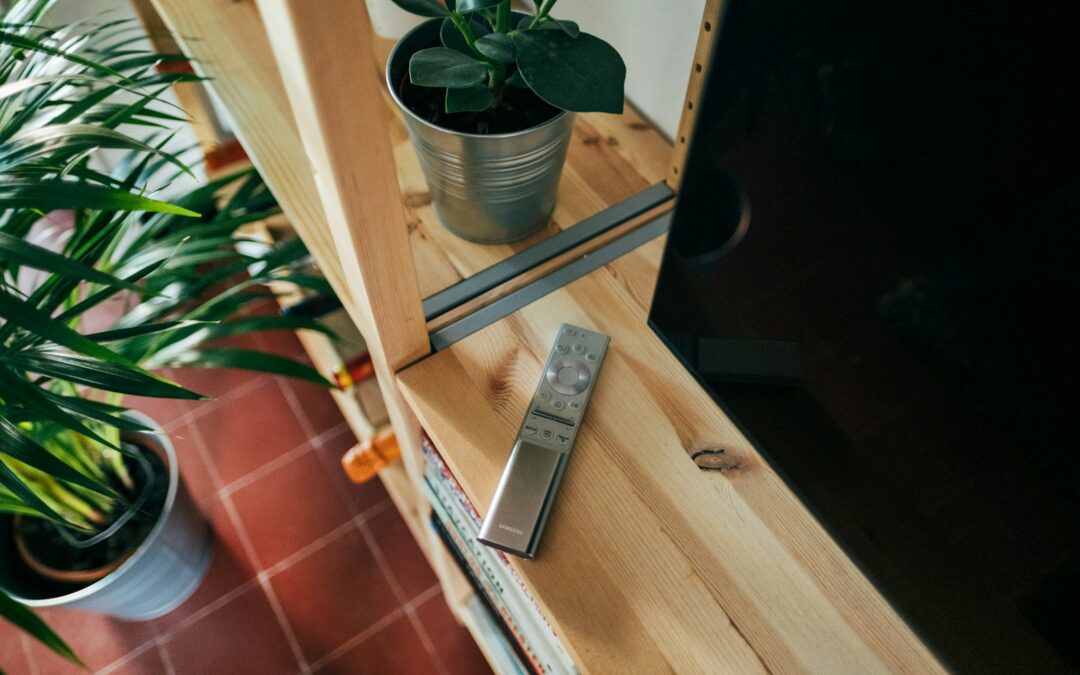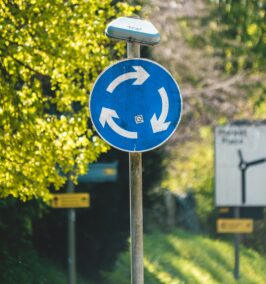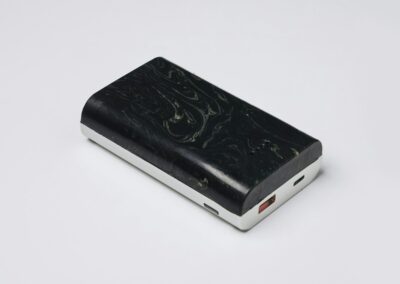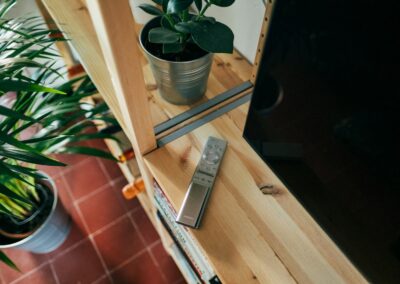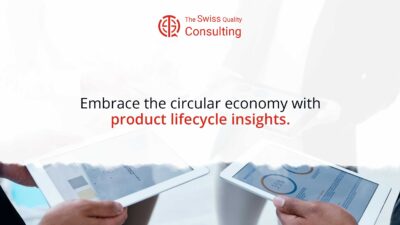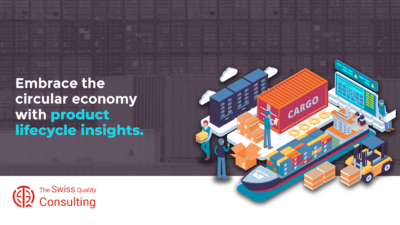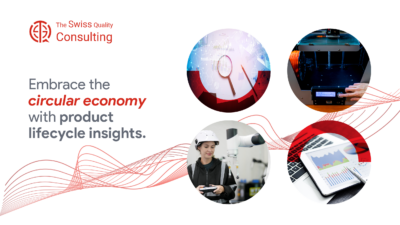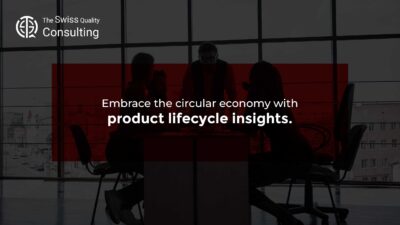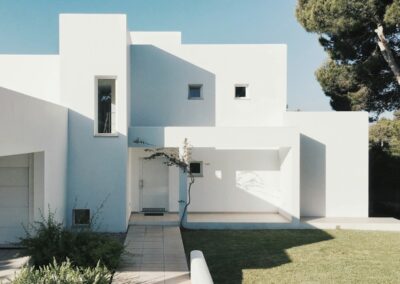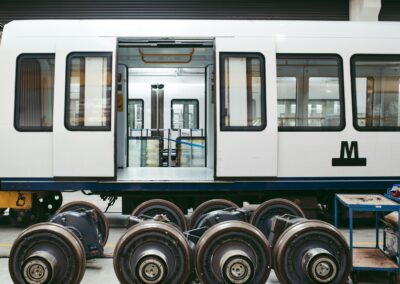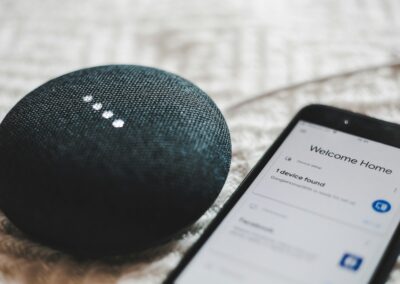Smart Home Technology: Driving Sustainable Living
The Role of Smart Home Technology in Resource Conservation
Innovations in smart home technology and circular economy are transforming modern living spaces, especially in rapidly developing regions like Saudi Arabia and the UAE. These advancements promote sustainability by supporting recycling and resource conservation within the home. Smart home systems are designed to optimize energy use, reduce waste, and enhance the overall efficiency of residential environments.
In Riyadh and Dubai, smart home technology is being integrated into new housing developments to meet the growing demand for sustainable living solutions. These technologies include smart thermostats, energy-efficient lighting, and advanced water management systems. By automating and optimizing these aspects of home management, smart homes help reduce resource consumption and minimize environmental impact.
Smart Appliances and Recycling
Intelligent Waste Management Systems
One of the key components of a circular economy is effective waste management. Smart home technology plays a crucial role in this area by integrating intelligent waste management systems that make recycling easier and more efficient. For example, smart bins equipped with sensors can sort waste into recyclables and non-recyclables automatically, reducing the burden on homeowners and ensuring higher recycling rates.
In the UAE, such technologies are being adopted in residential communities to promote sustainable living practices. These smart waste management systems not only help conserve resources but also reduce the carbon footprint of households by minimizing the amount of waste sent to landfills.
Energy-Efficient Appliances
Another significant innovation in smart home technology is the development of energy-efficient appliances. These appliances are designed to consume less power while delivering optimal performance, contributing to both energy conservation and cost savings for homeowners. Smart refrigerators, washing machines, and dishwashers can adjust their energy use based on the load and usage patterns, further enhancing their efficiency.
In Dubai, where sustainability is a key focus of urban development, energy-efficient appliances are becoming standard in new housing projects. These appliances not only support the circular economy by reducing energy consumption but also offer long-term financial benefits to residents through lower utility bills.
Water Conservation Technologies
Water conservation is another critical aspect of sustainable living that is being addressed through smart home technology. Smart irrigation systems, for example, can monitor soil moisture levels and weather forecasts to optimize watering schedules, ensuring that plants receive the right amount of water without wastage. Additionally, smart showers and faucets can regulate water flow and temperature, reducing water usage without compromising comfort.
In Riyadh, where water scarcity is a significant concern, these technologies are essential for promoting sustainable water management practices. By integrating smart water conservation technologies into homes, residents can contribute to the circular economy by conserving this vital resource.
The Circular Economy: A Sustainable Future
Creating a Circular Economy through Smart Home Design
Modular and Adaptable Living Spaces
Smart home technology is not just about individual appliances and systems; it also encompasses the overall design and functionality of living spaces. Modular and adaptable living spaces are key components of a circular economy, allowing homes to be easily reconfigured and repurposed to meet changing needs. This flexibility reduces the need for new construction and minimizes resource use over time.
In the UAE, modular housing projects are being developed to promote sustainable urban living. These homes are designed to be easily expanded or reconfigured, providing long-term value and reducing environmental impact. By embracing modular and adaptable living spaces, cities like Dubai can support the principles of a circular economy and create more sustainable communities.
Smart Energy Management Systems
Integration of Renewable Energy Sources
The integration of renewable energy sources is another critical aspect of promoting a circular economy through smart home technology. Solar panels, wind turbines, and other renewable energy systems can be seamlessly integrated into smart homes to reduce reliance on non-renewable energy sources. Smart energy management systems can optimize the use of these renewable sources, ensuring that homes are powered efficiently and sustainably.
In Saudi Arabia, where there is a significant focus on renewable energy development, smart homes equipped with renewable energy systems are becoming increasingly common. These homes not only reduce carbon emissions but also contribute to the circular economy by utilizing sustainable energy sources.
Battery Storage and Energy Sharing
Battery storage and energy sharing are also essential components of smart energy management systems. By storing excess energy generated by renewable sources, smart homes can ensure a consistent power supply even during periods of low generation. Additionally, energy sharing technologies enable homes to share surplus energy with the grid or neighboring homes, promoting a more resilient and sustainable energy system.
In Riyadh, smart home projects are incorporating these technologies to enhance energy security and support the circular economy. By leveraging battery storage and energy sharing, homes can contribute to a more sustainable and interconnected energy network.
Smart Home Technology and Business Success
Leadership and Management in Sustainable Development
For business executives, mid-level managers, and entrepreneurs, understanding the impact of smart home technology on sustainable development is crucial for driving business success. Leaders in the real estate and construction industries must stay ahead of technological advancements and incorporate sustainable practices into their projects. This not only enhances the value of their developments but also aligns with global sustainability goals.
In Dubai, where smart city initiatives are at the forefront of urban development, leaders are leveraging smart home technology to create innovative and sustainable housing solutions. By prioritizing sustainability and resource conservation, these leaders are setting new standards for the industry and driving long-term success.
Project Management and Innovation
Effective project management is essential for the successful implementation of smart home technology in residential developments. Project managers must coordinate various aspects of design, construction, and technology integration to ensure that smart homes deliver on their promises of sustainability and efficiency. This requires a deep understanding of both traditional construction practices and cutting-edge technologies.
In the UAE, project managers are adopting innovative approaches to integrate smart home technology into new developments. By utilizing advanced project management techniques, they can ensure that projects are completed on time, within budget, and to the highest standards of quality and sustainability.
Conclusion: Embracing Smart Home Technology for a Sustainable Future
The innovations in smart home technology and their role in promoting a circular economy are transforming the way we live and interact with our environments. By supporting recycling and resource conservation, smart homes contribute to a more sustainable future. For regions like Saudi Arabia and the UAE, these technologies are essential for achieving their sustainability goals and creating resilient, efficient, and connected urban communities.
Business executives, mid-level managers, and entrepreneurs must embrace these advancements to drive success in the evolving landscape of real estate and urban development. By prioritizing smart home technology and sustainable practices, they can lead the way toward a more sustainable and prosperous future.
—
#SmartHomeTechnology #CircularEconomy #Recycling #ResourceConservation #SustainableLiving #UAE #SaudiArabia #Riyadh #Dubai #ModernTechnology #BusinessSuccess #LeadershipSkills #ManagementSkills #ProjectManagement

